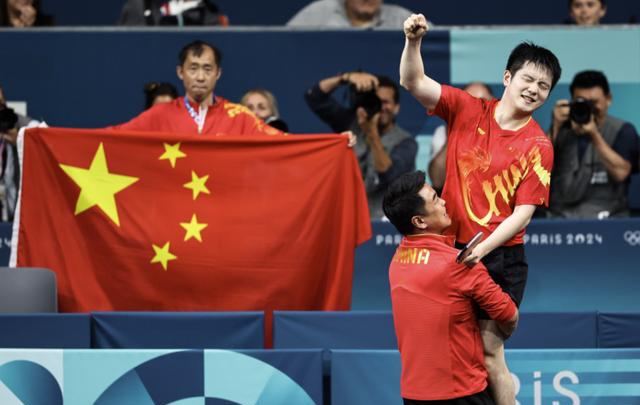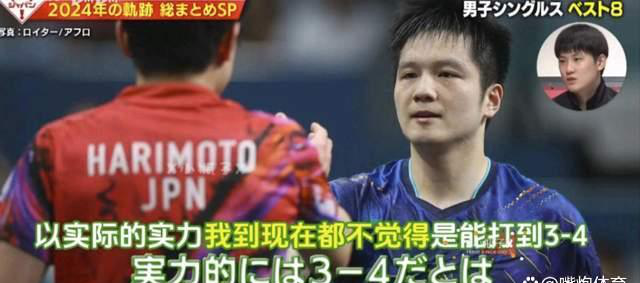Fan Zhendong's withdrawal from the world rankings has caused a stir in the table tennis community, making headlines and sparking discussions. It's a significant event, as he is considered a pillar of our national table tennis team, and his decision not to compete is unexpected.
This decision by Fan Zhendong to step down from the world rankings has created waves within the table tennis world. With his departure, it seems increasingly unlikely that we will see him compete in international events in the future.
It's ironic that despite being a world champion, Fan Zhendong had to make this choice due to certain rule restrictions. This is somewhat regrettable, considering he is in his prime with top-notch skills and abilities.
Fan Zhendong's dominance on the international stage is undeniable, even Japan's Tomokazu Harimoto openly admitted to not being able to defeat him. Such candid statements in front of the media demonstrate the immense pressure Fan Zhendong exerts on his opponents.
In the current Super League, Fan Zhendong is like a stabilizing force, causing even well-performing players like Koki Niwa to struggle against him. This clear gap in strength reflects his true dominance.

On the international stage, Fan Zhendong was a formidable presence that intimidated many foreign association players. His sudden withdrawal is indeed a significant blow to our national team, especially with Ma Long also gradually retiring. We are now without our two mainstays.
Ultimately, Fan Zhendong's withdrawal is closely tied to the rules set by the WTT, which can be quite inhumane for athletes, particularly young players with limited savings, creating an almost insurmountable obstacle for them.
German veteran Timo Boll's support for Fan Zhendong adds another layer to this story. As someone who has been in the sport for years, he understands the intricacies and thus strongly backs Fan Zhendong's decision.
While Fan Zhendong may face hefty fines for his withdrawal, the money is insignificant compared to the impact of his actions. He has used this opportunity to voice concerns on behalf of all athletes, showing a level of responsibility that is rare.
The young players in our national team are not yet ready to fill Fan Zhendong's shoes. Although there are promising talents like Chuqin Wang, reaching Fan Zhendong's level will require time and development.

With Fan Zhendong gone, the psychological advantage we once had over foreign association players might diminish, posing a considerable challenge to our national team.
Ma Long is also getting older and nearing retirement, and now with Fan Zhendong voluntarily stepping down, it is indeed a test for our team's strength reserve. We need to cultivate new talent urgently.
Fan Zhendong's withdrawal also sheds light on issues within modern sports competition, such as the conflict between commercial interests and athlete rights, which requires careful balancing.
Young athletes today must seriously consider their career plans, as an athlete's career span is limited, and proper planning is crucial.
This incident also raises questions about whether the direction of reform within the International Table Tennis Federation is problematic, focusing too much on commercial value at the expense of basic athlete needs.
Fan Zhendong's withdrawal could potentially trigger a series of chain reactions and might even push for reforms in the entire sport of table tennis. Whether this happens or not remains to be seen in the future developments.